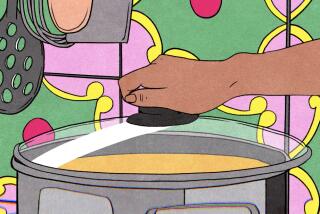Gabriel Celaya; Spanish Poet Became Protest Leader
- Share via
Gabriel Celaya, 80, the post-Civil War poet who became a leader of literary protest against the right-wing dictatorship of Gen. Francisco Franco. Celaya worked as an industrial engineer in his family business before publishing his first book of poems, “La Marea del Silencio” (“Tide of Silence”), in 1935. Civil war broke out a year later and in 1939 conservative forces overthrew the second Spanish republic, ushering in Franco’s long dictatorship. Originally known for his lyric poetry, Celaya gained fame as a leader of protest poets in the 1950s and 1960s. His essays on poets and poetry also strongly influenced younger poets, especially his key work “Exploracion de la Poesia” (“An Exploration of Poetry”) in 1964. His most widely known poem, “Poetry is a Weapon Loaded with the Future,” served as a rallying call and inspiration for other poets. Celaya published more than 50 books, including “Tentativas” (“Attempts”) in 1947, “Las Cartas Boca Arriba” (“The Cards Upside Down”) in 1951 and “Las Resistencias del Diamante” (“The Resistance of Diamonds”) in 1958. Celaya’s hospitalization in February, 1990, led to a national controversy when it was learned he was uninsured and would not be able to cover medical expenses. A storm of criticism about the inadequacies of national health insurance led the Culture Ministry to pay his bills and provide him with a $20,000 grant. In Madrid on Thursday of the complications of arteriosclerosis.
More to Read
Sign up for our Book Club newsletter
Get the latest news, events and more from the Los Angeles Times Book Club, and help us get L.A. reading and talking.
You may occasionally receive promotional content from the Los Angeles Times.







